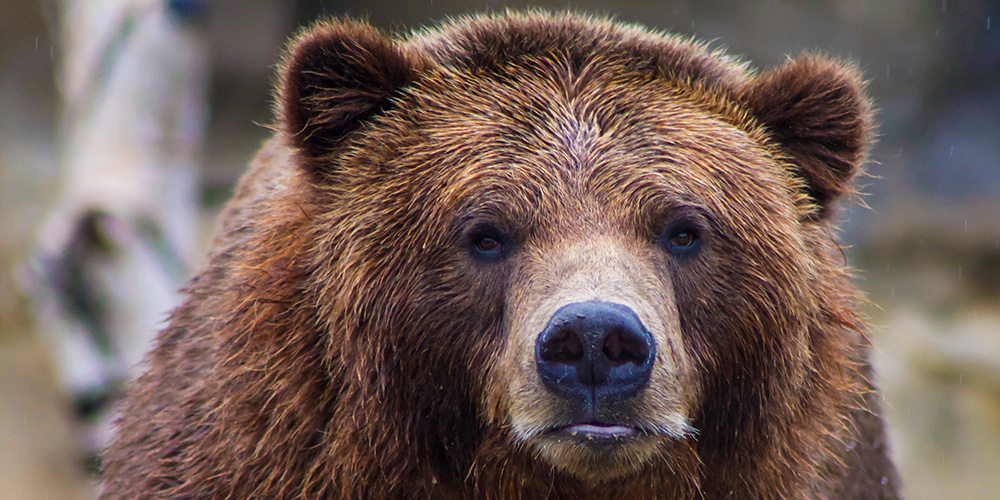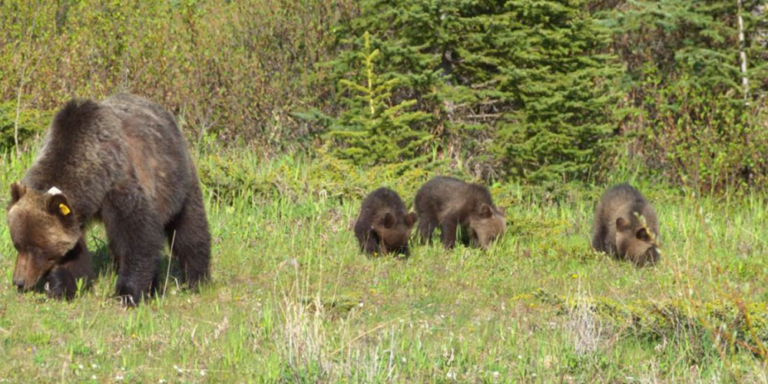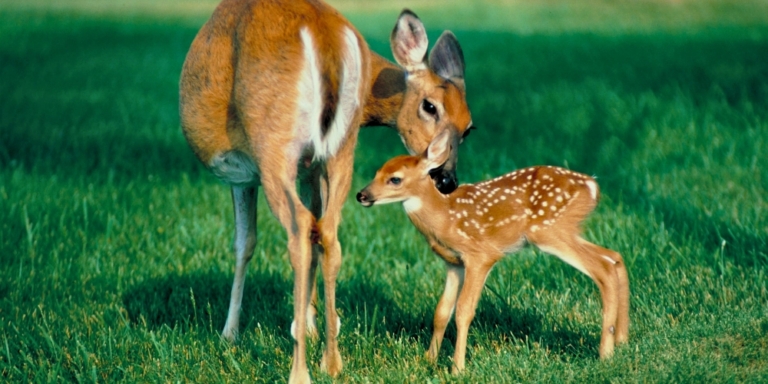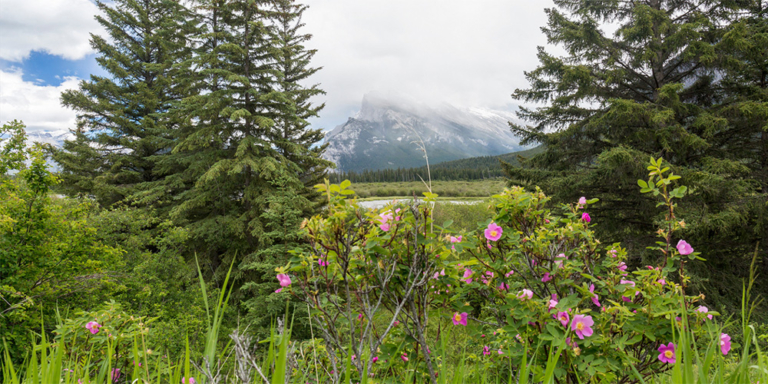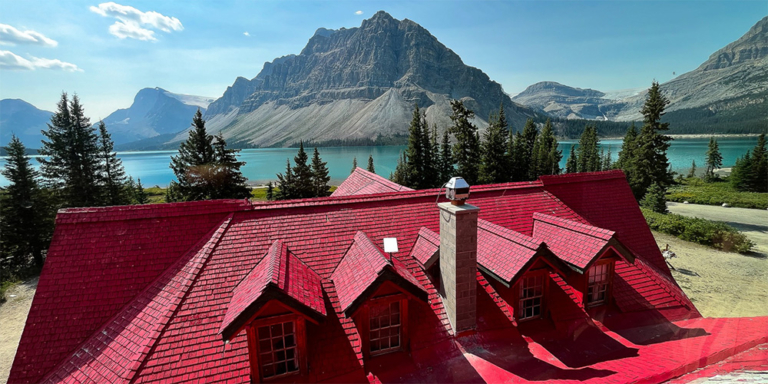Last Friday, tragedy struck when a couple and their dog were found dead in Banff National Park following a bear attack.
The couple have since been identified as Doug Inglis and Jenny Gusse, both 62, from Lethbridge. Tris, the couple’s seven-year-old border collie, was also killed in the attack.
The couple had been together since university. Inglis worked as a lab scientist, and Gusse was the lead technician at the same workplace.
Doug Inglis’ uncle, Colin Inglis, said the couple were on a weeklong backpacking trip into the remote backcountry of Banff National Park.
But things turned for the worse on day five of their journey.
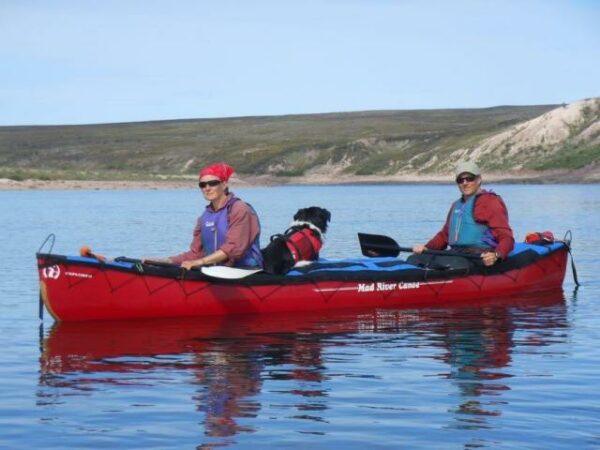

Ron Teather | The Canadian Press | Yahoo
According to Colin Inglis, everything seemed normal leading up to the attack. The couple checked in every day with Inglis and Gusse’s mom. But at 4:52 PM on Friday, Colin Inglis received a message from the couple that said they didn’t make it to their intended campsite but were otherwise okay.
“They are a couple that loved each other and loved the outdoors. And they were highly experienced in being out back, whether it be serious treks or canoeing, whitewater canoeing in the North country,” Inglis told CBC News.
Their message came on their Garmin inReach satellite communication device. It has two-way messaging and can be used to send SOS messages in an emergency. At 8:15 PM, Inglis was contacted by a Garmin representative who notified him that the couple’s SOS had been activated with a message stating, “Bear attack bad.”
“‘Bear attack bad’ means bad things. It means something is probably happening right then that is terrifying,” said Inglis.
Parks Canada also received an alert from a GPS device in the upper Red Deer River Valley deep in Banff National Park at 8 PM, indicating a bear attack. It took hours for a rescue team to arrive because lousy weather prevented helicopter access.
When a response team from the agency arrived at the couple’s campsite at 1 AM, they were charged by a grizzly bear. The bear was shot and killed and has been identified as the bear responsible for the attack.
“DNA samples from the bear have been sent to the lab and confirmed that it was the animal responsible for the attack,” said Parks Canada in a media release.
Parks Canada said the bear was not previously known to the agency. An autopsy on the bear revealed that it was a non-lactating female estimated to be over 25 years old. The female’s body fat was lower than is typical for this time of year, but otherwise, it was in fair body condition. However, the bear’s teeth were in poor shape and worn down.
During hibernation, black bears and grizzly bears do not eat or drink. They survive off a layer of fat built up during the summer and fall, leading to hibernation. During this time, bears experience hyperphagia, the medical term for a feeling of extreme hunger that cannot be satisfied. If a bear does not have enough fat during hibernation, it will die of starvation or leave the den for food.
Fattening up before winter is vital for female grizzly bears. Females need at least 20 percent body fat to get pregnant. If a female does not store enough fat for herself and her cub, her body will reabsorb the embryo, and she will not give birth. The fatter she is, the more cubs she will have.
Bears are especially active before hibernation, consuming ten times as many calories as they need during the warmer months. Finding food is a matter of life and death. But grizzly bears rarely actively hunt people as a primary food source.
Generally, Grizzlies are defensive and will attack humans if they are surprised or if they are defending their cubs or food source.
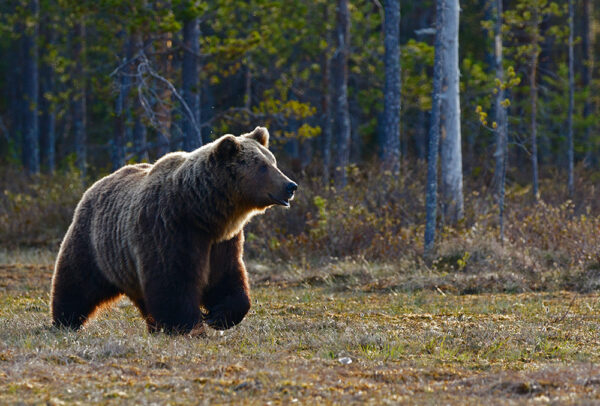

What caused the bear to attack the couple?
No one knows for sure, but Colleen Cassady St. Clair, a biological sciences professor at the University of Alberta, believes the bear was likely predatory, meaning the bear saw the couple and their dog as prey.
It is important to note that predatory bear attacks are very rare, representing just five percent of all attacks. But predatory attacks do sometimes happen.
The couple’s campsite was what you’d expect from experienced campers taking proper precautions. The couple’s food had been hung appropriately, and they had the necessary permits for their camping trip. Inglis claims the couple were likely reading in their tent with their dog at the time of the attack.
When the response team arrived at the campsite, the couple’s tent was crushed with their e-readers inside. The couple’s bodies were found outside of the tent alongside two bear spray canisters, one of which was empty.
There were signs the couple tried to scare off the bear without success.
What caused the tragic attack remains unknown, but Inglis believes the couple might have been in the wrong place at the wrong time with a rogue bear.
While a bear attack is extremely uncommon and predatory attacks are even more rare, it could happen to anyone—even the most experienced campers. But this attack seems especially out of the ordinary.
Enjoying the backcountry is a privilege that comes with risks.
But this attack seems especially egregious given that the evidence suggests that the couple did everything correctly.

